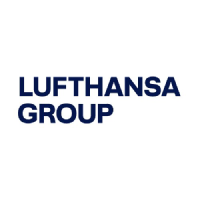Selbst wenn die Börse noch so verrückt spielt, die äusserst positive Entwicklung von Hartcourt ist nicht mehr zu stoppen.
08Nov2000 CHINA: China`s Stock Brokers Gear Up For Online Trading War.
B y Ramoncito dela Cruz
Of DOW JONES NEWSWIRES
SHANGHAI -(Dow Jones)-The first salvo has been fired in what is expected to be the next battleground for China`s securities industry: on-line trading.
A relatively unknown securities broker, Qinghai Securities, has announced a discount on its commission fees of up to 65%, drawing the ire of some competitors and prompting others to imitate the price cuts.
"The current commission structure is too high. It`s hurting investors` interest (to trade in the market)," said Fan Lin, the marketing head of Qinghai Securities, which is advertising the discount on its Web site. Fan said the brokerage house aims to amass enough volume to offset the lower commission fees, which account for the bulk of its revenue.
The company, which was established in 1997 with registered capital of 54 million yuan ($1=CNY8.28), has only six branches operating in the country.
The stock exchange has set a 0.35% fee as a benchmark rate for both on-line and regular trading, but Fan said the final fee is usually set by the brokerage houses and their clients. His company now charges fees ranging between 0.1225% and 0.175% on trades.
The move to slash fees by Shenzhen-based Qinghai Securities shows how that Internet is slowly altering the landscape of the financial services industry in China. But it also reflects the fact that a lot of Internet businesses here aren`t exactly thriving - especially in the financial realm.
A study conducted by the Shanghai Stock Exchange, for example, showed there were only 250,000 on-line traders in China, accounting for 0.5% of the total number of stock investors, as of last summer.
Guosen Securities, a competitor that now offers a 50% discount, said there is a need to aggressively court on-line traders since stock investors aren`t switching online as rapidly as what was expected by securities firms which have gone on-line.
In order to address that problem, Qinghai Securities has copied its business model from the discount brokerage houses in United States and Japan, Fan said. The company claims to have 100,000 on-line customers.
############################
Market Competition A Trend
On-line transactions have amounted to more than CNY700,000 yuan every day, representing 0.35% of the total market turnover. The main reasons for its sluggish growth are high internet access fee and rigid commission structure, the exchange report said.
"The move to make commission market-oriented is a trend in the market," Liu Weijin, an analyst at Guosen Securities in Shenzhen, said.
The view was supported by the Ma Qingquan, secretary general of China`s securities brokerage group.
Ma called for a reform in the present commission structure, since "it is ineffective in attracting capital, clients as well as improving market liquidity."
However, not all are happy about the discount promo.
Huatai Securities, which has a thriving online brokerage business, said Qinghai Securities "isn`t playing by the rule."
Yao Wanping, a senior analyst in Huatai Securities, said such cutthroat competition is unhealthy and short-sighted.
He cited the ongoing price war in the consumer electronic business in China, "and the result is not good." Many domestic electronic makers have suffered huge losses due to the prolonged price war in the market.
Instead of giving discount, Yao said on-line brokers should use better service and product to lure in customers.
Huatai claims to have 170,000 on-line customers, with total transactions amounting to CNY18 billion from the start of the year.
Yao said China Securities Regulatory Commission should intervene before the situation worsens.
However, other brokers aren`t expecting the market regulator to step in, since the commission discount is one way of attracting more people into the stock market.
Unfazed by criticisms, Fan said the present discount may not be the first and last salvo for Qinghai Securities.
Company Websites: www.my0578.com, www.guosen.com.cn, www.htsc.com.cn
-By Ramoncito dela Cruz; Dow Jones Newswires; (86-21) 6218-3268; ramoncito.delacruz@dowjones.com.
(Copyright (c) 2000, Dow Jones & Company, Inc.).
Quelle: DOW JONES INTERNATIONAL NEWS 08/11/2000
############################
09Nov2000 CHINA: HK Citic Pac Gets OK To Buy 50% Of China Cable Network Co.
HONG KONG - (Dow Jones)-Hong Kong-listed conglomerate Citic Pacific Ltd. (H.CIP) has received a long-awaited approval from the relevant Chinese authorities to buy 50% of Citic Guoan Co. (Q.CGI) for 1.80 billion yuan (US$1=CNY8.2772) from one of its major shareholders, the company said in a release Thursday.
Citic Guoan is a holding company whose main asset is a 69.8% interest in Citic Guoan Information Industry Co., which operates cable-television networks on the mainland and is expected to have 7 million subscribers in the coming six months. Citic Guoan also provides financial information and advertising services and has some property investments.
The seller is China International Trust and Investment Corp., or Citic Beijing, which, together with its associates, holds 28.7% in Citic Pacific.
Of the total cost, CNY600 million will be in the form of an interest-bearing loan, Citic Pacific said.
Under the agreement, Citic Beijing, which will continue to hold 50% in Citic Guoan, may inject other telecommunications and cable-TV broadband network projects selected by Citic Guoan into the venture within 360 days of the investment being completed. The cost of such injections will be set off against the loan.
The acquisition cost has been reduced slightly from the CNY2 billion that Citic Pacific agreed to pay when the deal was first announced in January this year.
The purchase is in line with Citic Pacific`s strategy to develop a large diversified business focusing on infrastructure, but supported by trading, distribution and property development, it said.
The cable-TV assets will also complement its existing telecommunications investments in a national fiber-optic network, Citic Pacific said.
The network owners are currently in discussions with relevant government bodies to obtain an operating permission for the fiber-optic network in which Citic Pacific owns 60%. The company has earlier said it is arranging for cooperation with a mainland telecommunications company regarding the operation of the network as a means of speeding up approval from the authorities.
The remaining 40% of the network is equally owned by Citic Beijing and Citic Pacific`s Chairman Larry Yung.
Citic Pacific closed at HK$32.10 Wednesday, after falling 70 HK cents during the session.
- By Anette Jonsson, Dow Jones Newswires; 852-2802-7002; anette.jonsson@dowjones.com.
(Copyright (c) 2000, Dow Jones & Company, Inc.).
Quelle: DOW JONES INTERNATIONAL NEWS 09/11/2000
############################
09Nov2000 CHINA: Legend introduces Net-enabled palm tops.
HONGKONG - China`s largest personal computer producer, Legend Holdings Ltd, said on Tuesday it had launched Internet-enabled palm top computers in the Chinese market.
The new products, which can connect to the company`s information portal www.palm365.com, are priced at between 1,500 yuan (US$181.2) and 1,980 yuan each, the company said in a statement.
Palm365.com, supported by Internet portal FM365.com launched by Legend in April, offers various Internet services, including financial news, shopping and e-mail, it said.
"Legend is fully aware of the development in the mobile Internet arena," Legend Executive Director Yang Yuanqing said in the statement.
Legend shares closed at HK$6.85 on Tuesday.
(c) Copyright China Securities Bulletin.
Quelle: CHINA SECURITIES BULLETIN 09/11/2000
############################
Internet: Lohnt die Investion in China
Experten meinen: der richtige Zeitpunkt für den Einstieg ist jetzt
Die Eroberung eines Marktes von 1,3 Millarden Menschen - ein Traum für jedes Unternehmen. Wie dieser Markt sich zusammensetzt, was man beim Markteintritt berücksichtigen muss und welche Wege zum Ziel führen, darüber diskutierte eine hochkarätig besetzte Expertenrunde bei den diesjährigen Medientage München 2000. Unter dem Titel "Internationale Medienmärkte: Expandieren in asiatische Länder: China" erörterten Vertreter von Buchverlagen, Internet-Startups, Bank in China und Medien die Chance für einen Einstieg ins Reich der Mitte.
Ekkehard Rathgeber, Geschäftsführer der BertelsmannBuch AG, Shanghai stellte fest, dass der beste Zeitpunkt für die Expansion nach China jetzt gegeben ist - in 10 bis 15 Jahren sei in China "alles schon gelaufen". Die Bertelsmann Buch AG übertrug ihr Geschäftsmodell des Buchclubs 1:1 nach China. Dort agierte das Unternehmen mit fast ausnahmslos chinesischen Mitarbeitern flexibel und schnell. So erfolgt beispielsweise in Shanghai die Buchauslieferung mit Fahrradkurieren. Der Kunde muss erst bezahlen, wenn er das Buch tatsächlich in den Händen hält.
Frank Hamer, Geschäftsführer der Deutschen Bank Shanghai, sieht für ausländische Investoren in erster Linie zwei Alternativen: Entweder ein Joint Venture, dabei sucht der ausländische Investor sich einen chinesischen Partner. Oder eine Wholly Foreign Owned Enterprise - wie die Deutsche Bank es selbst ist, mit einer sorgfältigen Rekrutierung chinesischer Mitarbeiter und Berater. Denn Networking steht in chinesischen Geschäftsbeziehungen an erster Stelle.
Im Online-Bereich, müssen sich deutsche Unternehmen auf eine Infrastruktur einstellen, die noch im Wandel begriffen ist. Doch gerade dieser Branche werden in China große Zukunftschancen prophezeit. Andreas Westhoff, Director International Operations baut im Moment ein weiteres Standbein für die ad pepper media international auf. Er möchte dort zu den ersten bei der Vermarktung von Werbung im Internet zu gehören.
Das defensiv-ängstliche Bild, das so mancher Europäer von China hat, sei das größte Problem bei der Erschließung des Marktes, sagt Sabine Stricker-Kellerer. Man dürfe nicht versuchen, chinesischer zu sein als die chinesischen Manager selbst. Es gäbe keinen idealen Weg, in den diversifizierten Markt Chinas einzutreten. Stefan Niemann, Auslandskorrespondent der ARD in Beijing, beschreibt die Situation mit dem Phänomen, dass in China zwei Jahrhunderte koexistieren: das Jahrhundert der informierten Stadtbevölkerung in den Städten und der Ostküste, und das Jahrhundert der Landbevölkerung im Westen. Am leichtesten können mittelständische, in ihrem Konzept bewegliche Unternehmen auf die stets variierenden Gegebenheiten des Landes reagieren. Als Unternehmer müsse man sich auf schier täglich wechselnde Gesetzestexte ebenso einstellen wie auf die kulturellen Unterschiede Asiens.
Quelle
de.internet.com/artikel/index.jsp?2000153
############################
Durchbruch bei WTO-Beitrittsverhandlungen mit China
GENF (dpa-AFX) - China ist auf dem Weg in die Welthandelsorganisation (WTO) überraschend einen deutlichen Schritt vorangekommen. "Wenn die WTO-Mitglieder den politischen Willen haben, die Verhandlungen bei der nächsten Sitzung im Dezember abzuschließen, wird China alle Anstrengungen unternehmen, um das möglich zu machen", sagte der chinesische Unterhändler Long Yongtu nach Abschluss der jüngsten Gesprächsrunde am Donnerstag in Genf. Der Verhandlungsleiter, der stellvertretende WTO-Generaldirektor Paul-Henri Ravier, sprach von einem "Durchbruch".
Konkret einigten sich China und die in der Beitrittsarbeitsgruppe vertretenen interessierten WTO-Mitglieder darüber, dass Zölle nur noch von der Zentralregierung und nicht von Provinzverwaltungen festgelegt werden. Ausländische Firmen erhalten einen Ansprechpartner für Auskünfte in Rechtsfragen und Beschwerden. Bei der bislang strittigen Frage, wie lange und wie oft die WTO die Einhaltung der Absprachen in China konkret überprüfen kann, ist die Einigung fast perfekt.
Fortschritte gab es auch bei Fragen des Patentschutzes und der Einfuhrquoten. China besteht allerdings weiterhin darauf, als Entwicklungsland in die WTO aufgenommen zu werden. Damit stünden Peking Ausnahmen von WTO-Regeln zu, die die westlichen Länder dem Land angesichts seiner Größe nicht zugestehen wollen.
"Wie haben dieses Mal eine neue Dynamik geschaffen", sagte Ravier. In diesem Sinne solle auch die nächste Gesprächsrunde Anfang Dezember angegangen werden. Selbst, wenn alle Hindernisse bei dem Treffen aus dem Weg geräumt werden, dauert das Beitrittsprozedere noch mehrere Monate.
Die jüngsten Fortschritte kamen für viele Diplomaten überraschend, weil die vorherige Verhandlungsrunde Ende September überwiegend von Frustration und Verärgerung gekennzeichnet war. Dabei hatten sich die Seiten verhärtet. Seitdem haben Europäer und Amerikaner bei Einzelgesprächen in Peking intensiv um mehr Flexibilität geworben./oe/mr/DP
08Nov2000 CHINA: China`s Stock Brokers Gear Up For Online Trading War.
B y Ramoncito dela Cruz
Of DOW JONES NEWSWIRES
SHANGHAI -(Dow Jones)-The first salvo has been fired in what is expected to be the next battleground for China`s securities industry: on-line trading.
A relatively unknown securities broker, Qinghai Securities, has announced a discount on its commission fees of up to 65%, drawing the ire of some competitors and prompting others to imitate the price cuts.
"The current commission structure is too high. It`s hurting investors` interest (to trade in the market)," said Fan Lin, the marketing head of Qinghai Securities, which is advertising the discount on its Web site. Fan said the brokerage house aims to amass enough volume to offset the lower commission fees, which account for the bulk of its revenue.
The company, which was established in 1997 with registered capital of 54 million yuan ($1=CNY8.28), has only six branches operating in the country.
The stock exchange has set a 0.35% fee as a benchmark rate for both on-line and regular trading, but Fan said the final fee is usually set by the brokerage houses and their clients. His company now charges fees ranging between 0.1225% and 0.175% on trades.
The move to slash fees by Shenzhen-based Qinghai Securities shows how that Internet is slowly altering the landscape of the financial services industry in China. But it also reflects the fact that a lot of Internet businesses here aren`t exactly thriving - especially in the financial realm.
A study conducted by the Shanghai Stock Exchange, for example, showed there were only 250,000 on-line traders in China, accounting for 0.5% of the total number of stock investors, as of last summer.
Guosen Securities, a competitor that now offers a 50% discount, said there is a need to aggressively court on-line traders since stock investors aren`t switching online as rapidly as what was expected by securities firms which have gone on-line.
In order to address that problem, Qinghai Securities has copied its business model from the discount brokerage houses in United States and Japan, Fan said. The company claims to have 100,000 on-line customers.
############################
Market Competition A Trend
On-line transactions have amounted to more than CNY700,000 yuan every day, representing 0.35% of the total market turnover. The main reasons for its sluggish growth are high internet access fee and rigid commission structure, the exchange report said.
"The move to make commission market-oriented is a trend in the market," Liu Weijin, an analyst at Guosen Securities in Shenzhen, said.
The view was supported by the Ma Qingquan, secretary general of China`s securities brokerage group.
Ma called for a reform in the present commission structure, since "it is ineffective in attracting capital, clients as well as improving market liquidity."
However, not all are happy about the discount promo.
Huatai Securities, which has a thriving online brokerage business, said Qinghai Securities "isn`t playing by the rule."
Yao Wanping, a senior analyst in Huatai Securities, said such cutthroat competition is unhealthy and short-sighted.
He cited the ongoing price war in the consumer electronic business in China, "and the result is not good." Many domestic electronic makers have suffered huge losses due to the prolonged price war in the market.
Instead of giving discount, Yao said on-line brokers should use better service and product to lure in customers.
Huatai claims to have 170,000 on-line customers, with total transactions amounting to CNY18 billion from the start of the year.
Yao said China Securities Regulatory Commission should intervene before the situation worsens.
However, other brokers aren`t expecting the market regulator to step in, since the commission discount is one way of attracting more people into the stock market.
Unfazed by criticisms, Fan said the present discount may not be the first and last salvo for Qinghai Securities.
Company Websites: www.my0578.com, www.guosen.com.cn, www.htsc.com.cn
-By Ramoncito dela Cruz; Dow Jones Newswires; (86-21) 6218-3268; ramoncito.delacruz@dowjones.com.
(Copyright (c) 2000, Dow Jones & Company, Inc.).
Quelle: DOW JONES INTERNATIONAL NEWS 08/11/2000
############################
09Nov2000 CHINA: HK Citic Pac Gets OK To Buy 50% Of China Cable Network Co.
HONG KONG - (Dow Jones)-Hong Kong-listed conglomerate Citic Pacific Ltd. (H.CIP) has received a long-awaited approval from the relevant Chinese authorities to buy 50% of Citic Guoan Co. (Q.CGI) for 1.80 billion yuan (US$1=CNY8.2772) from one of its major shareholders, the company said in a release Thursday.
Citic Guoan is a holding company whose main asset is a 69.8% interest in Citic Guoan Information Industry Co., which operates cable-television networks on the mainland and is expected to have 7 million subscribers in the coming six months. Citic Guoan also provides financial information and advertising services and has some property investments.
The seller is China International Trust and Investment Corp., or Citic Beijing, which, together with its associates, holds 28.7% in Citic Pacific.
Of the total cost, CNY600 million will be in the form of an interest-bearing loan, Citic Pacific said.
Under the agreement, Citic Beijing, which will continue to hold 50% in Citic Guoan, may inject other telecommunications and cable-TV broadband network projects selected by Citic Guoan into the venture within 360 days of the investment being completed. The cost of such injections will be set off against the loan.
The acquisition cost has been reduced slightly from the CNY2 billion that Citic Pacific agreed to pay when the deal was first announced in January this year.
The purchase is in line with Citic Pacific`s strategy to develop a large diversified business focusing on infrastructure, but supported by trading, distribution and property development, it said.
The cable-TV assets will also complement its existing telecommunications investments in a national fiber-optic network, Citic Pacific said.
The network owners are currently in discussions with relevant government bodies to obtain an operating permission for the fiber-optic network in which Citic Pacific owns 60%. The company has earlier said it is arranging for cooperation with a mainland telecommunications company regarding the operation of the network as a means of speeding up approval from the authorities.
The remaining 40% of the network is equally owned by Citic Beijing and Citic Pacific`s Chairman Larry Yung.
Citic Pacific closed at HK$32.10 Wednesday, after falling 70 HK cents during the session.
- By Anette Jonsson, Dow Jones Newswires; 852-2802-7002; anette.jonsson@dowjones.com.
(Copyright (c) 2000, Dow Jones & Company, Inc.).
Quelle: DOW JONES INTERNATIONAL NEWS 09/11/2000
############################
09Nov2000 CHINA: Legend introduces Net-enabled palm tops.
HONGKONG - China`s largest personal computer producer, Legend Holdings Ltd, said on Tuesday it had launched Internet-enabled palm top computers in the Chinese market.
The new products, which can connect to the company`s information portal www.palm365.com, are priced at between 1,500 yuan (US$181.2) and 1,980 yuan each, the company said in a statement.
Palm365.com, supported by Internet portal FM365.com launched by Legend in April, offers various Internet services, including financial news, shopping and e-mail, it said.
"Legend is fully aware of the development in the mobile Internet arena," Legend Executive Director Yang Yuanqing said in the statement.
Legend shares closed at HK$6.85 on Tuesday.
(c) Copyright China Securities Bulletin.
Quelle: CHINA SECURITIES BULLETIN 09/11/2000
############################
Internet: Lohnt die Investion in China
Experten meinen: der richtige Zeitpunkt für den Einstieg ist jetzt
Die Eroberung eines Marktes von 1,3 Millarden Menschen - ein Traum für jedes Unternehmen. Wie dieser Markt sich zusammensetzt, was man beim Markteintritt berücksichtigen muss und welche Wege zum Ziel führen, darüber diskutierte eine hochkarätig besetzte Expertenrunde bei den diesjährigen Medientage München 2000. Unter dem Titel "Internationale Medienmärkte: Expandieren in asiatische Länder: China" erörterten Vertreter von Buchverlagen, Internet-Startups, Bank in China und Medien die Chance für einen Einstieg ins Reich der Mitte.
Ekkehard Rathgeber, Geschäftsführer der BertelsmannBuch AG, Shanghai stellte fest, dass der beste Zeitpunkt für die Expansion nach China jetzt gegeben ist - in 10 bis 15 Jahren sei in China "alles schon gelaufen". Die Bertelsmann Buch AG übertrug ihr Geschäftsmodell des Buchclubs 1:1 nach China. Dort agierte das Unternehmen mit fast ausnahmslos chinesischen Mitarbeitern flexibel und schnell. So erfolgt beispielsweise in Shanghai die Buchauslieferung mit Fahrradkurieren. Der Kunde muss erst bezahlen, wenn er das Buch tatsächlich in den Händen hält.
Frank Hamer, Geschäftsführer der Deutschen Bank Shanghai, sieht für ausländische Investoren in erster Linie zwei Alternativen: Entweder ein Joint Venture, dabei sucht der ausländische Investor sich einen chinesischen Partner. Oder eine Wholly Foreign Owned Enterprise - wie die Deutsche Bank es selbst ist, mit einer sorgfältigen Rekrutierung chinesischer Mitarbeiter und Berater. Denn Networking steht in chinesischen Geschäftsbeziehungen an erster Stelle.
Im Online-Bereich, müssen sich deutsche Unternehmen auf eine Infrastruktur einstellen, die noch im Wandel begriffen ist. Doch gerade dieser Branche werden in China große Zukunftschancen prophezeit. Andreas Westhoff, Director International Operations baut im Moment ein weiteres Standbein für die ad pepper media international auf. Er möchte dort zu den ersten bei der Vermarktung von Werbung im Internet zu gehören.
Das defensiv-ängstliche Bild, das so mancher Europäer von China hat, sei das größte Problem bei der Erschließung des Marktes, sagt Sabine Stricker-Kellerer. Man dürfe nicht versuchen, chinesischer zu sein als die chinesischen Manager selbst. Es gäbe keinen idealen Weg, in den diversifizierten Markt Chinas einzutreten. Stefan Niemann, Auslandskorrespondent der ARD in Beijing, beschreibt die Situation mit dem Phänomen, dass in China zwei Jahrhunderte koexistieren: das Jahrhundert der informierten Stadtbevölkerung in den Städten und der Ostküste, und das Jahrhundert der Landbevölkerung im Westen. Am leichtesten können mittelständische, in ihrem Konzept bewegliche Unternehmen auf die stets variierenden Gegebenheiten des Landes reagieren. Als Unternehmer müsse man sich auf schier täglich wechselnde Gesetzestexte ebenso einstellen wie auf die kulturellen Unterschiede Asiens.
Quelle
de.internet.com/artikel/index.jsp?2000153
############################
Durchbruch bei WTO-Beitrittsverhandlungen mit China
GENF (dpa-AFX) - China ist auf dem Weg in die Welthandelsorganisation (WTO) überraschend einen deutlichen Schritt vorangekommen. "Wenn die WTO-Mitglieder den politischen Willen haben, die Verhandlungen bei der nächsten Sitzung im Dezember abzuschließen, wird China alle Anstrengungen unternehmen, um das möglich zu machen", sagte der chinesische Unterhändler Long Yongtu nach Abschluss der jüngsten Gesprächsrunde am Donnerstag in Genf. Der Verhandlungsleiter, der stellvertretende WTO-Generaldirektor Paul-Henri Ravier, sprach von einem "Durchbruch".
Konkret einigten sich China und die in der Beitrittsarbeitsgruppe vertretenen interessierten WTO-Mitglieder darüber, dass Zölle nur noch von der Zentralregierung und nicht von Provinzverwaltungen festgelegt werden. Ausländische Firmen erhalten einen Ansprechpartner für Auskünfte in Rechtsfragen und Beschwerden. Bei der bislang strittigen Frage, wie lange und wie oft die WTO die Einhaltung der Absprachen in China konkret überprüfen kann, ist die Einigung fast perfekt.
Fortschritte gab es auch bei Fragen des Patentschutzes und der Einfuhrquoten. China besteht allerdings weiterhin darauf, als Entwicklungsland in die WTO aufgenommen zu werden. Damit stünden Peking Ausnahmen von WTO-Regeln zu, die die westlichen Länder dem Land angesichts seiner Größe nicht zugestehen wollen.
"Wie haben dieses Mal eine neue Dynamik geschaffen", sagte Ravier. In diesem Sinne solle auch die nächste Gesprächsrunde Anfang Dezember angegangen werden. Selbst, wenn alle Hindernisse bei dem Treffen aus dem Weg geräumt werden, dauert das Beitrittsprozedere noch mehrere Monate.
Die jüngsten Fortschritte kamen für viele Diplomaten überraschend, weil die vorherige Verhandlungsrunde Ende September überwiegend von Frustration und Verärgerung gekennzeichnet war. Dabei hatten sich die Seiten verhärtet. Seitdem haben Europäer und Amerikaner bei Einzelgesprächen in Peking intensiv um mehr Flexibilität geworben./oe/mr/DP



















